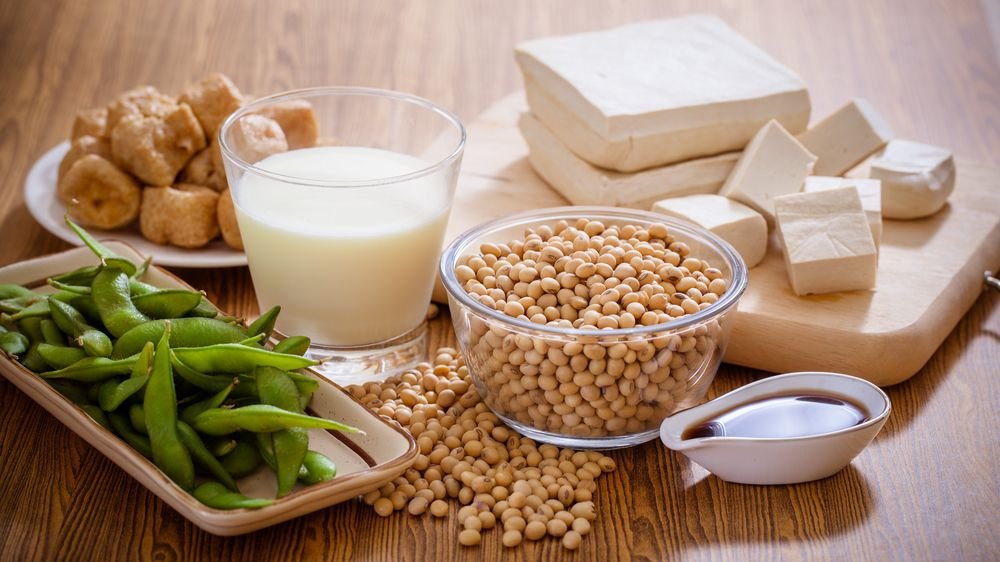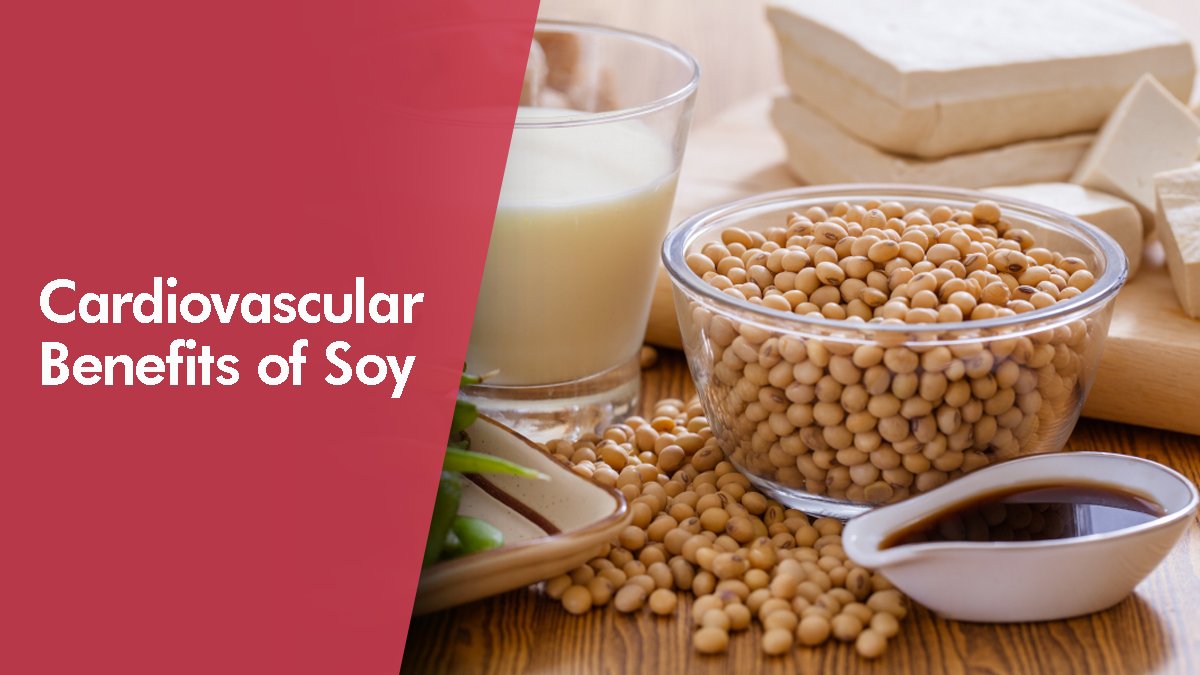When it comes to maintaining a healthy heart, diet plays a crucial role. Among the many heart-healthy foods, soy stands out as an excellent option for supporting cardiovascular health. Rich in plant-based protein, fiber, and beneficial compounds, soy can help reduce cholesterol levels and lower the risk of heart disease. In this article, we’ll explore how soy contributes to heart health and cholesterol management, and why you should consider incorporating more soy-based foods into your diet.
1. Soy Protein and Cholesterol Reduction
One of the most well-researched benefits of soy for heart health is its ability to lower cholesterol levels. Studies have shown that incorporating soy protein into your diet can help reduce both total cholesterol and LDL cholesterol (the “bad” cholesterol) without negatively impacting HDL cholesterol (the “good” cholesterol).
- Lowering LDL Cholesterol: Soy protein contains amino acids that can help reduce the liver’s production of LDL cholesterol. The cholesterol-lowering effect of soy is thought to be due to its isoflavones, plant compounds that mimic estrogen in the body and have been shown to influence cholesterol metabolism.
- Supporting HDL Cholesterol: Unlike some animal proteins, soy has a neutral effect on HDL cholesterol, meaning it does not reduce the “good” cholesterol levels that help remove excess cholesterol from the bloodstream. This balance is vital for cardiovascular health.
Incorporating 25 grams of soy protein per day has been shown to significantly reduce the risk of heart disease, according to the U.S. Food and Drug Administration (FDA). The cholesterol-lowering effects are comparable to those of other high-quality protein sources.
2. Soy and Blood Pressure Management
In addition to its cholesterol-lowering benefits, soy can also contribute to healthy blood pressure levels. Soy protein and isoflavones may help relax blood vessels, improving blood flow and reducing blood pressure. Some studies suggest that regular soy consumption can lead to small but significant reductions in both systolic (top number) and diastolic (bottom number) blood pressure.
- Isoflavones and Vasodilation: The isoflavones in soy may promote the relaxation of blood vessels (known as vasodilation), leading to lower blood pressure. This mechanism helps reduce the strain on the heart and circulatory system, lowering the risk of heart disease and stroke.
- Soy and Potassium: Soybeans are also a good source of potassium, a mineral that plays a key role in maintaining healthy blood pressure. Potassium helps balance sodium levels in the body, which can prevent high blood pressure from developing.
Incorporating soy-based foods such as tofu, tempeh, and edamame into your diet can offer additional support for blood pressure regulation.

3. The Role of Soy in Heart Disease Prevention
Chronic conditions like high cholesterol and high blood pressure are key risk factors for heart disease. By addressing these factors, soy can help lower the overall risk of developing cardiovascular disease.
- Antioxidants and Anti-inflammatory Properties: Soy contains antioxidants like isoflavones and polyphenols, which may help reduce inflammation in the body. Chronic inflammation is a significant contributor to the development of heart disease, as it can lead to the buildup of plaque in the arteries (atherosclerosis). The antioxidants in soy help neutralize free radicals, reducing oxidative stress and supporting heart health.
- Improved Artery Function: Soy is also linked to better endothelial function, which refers to the health of the cells lining your blood vessels. Healthy endothelial cells are essential for preventing the buildup of plaque in the arteries and maintaining good circulation.
By incorporating soy into a heart-healthy diet, you can further reduce your risk of developing heart disease over time.
4. Soy as Part of a Heart-Healthy Diet
To harness the heart-healthy benefits of soy, it’s important to include it in a balanced, nutrient-rich diet. Here are some soy-based foods that can help manage cholesterol levels and improve cardiovascular health:
- Tofu: A versatile soy product that can be used in a variety of dishes, from stir-fries to smoothies, tofu is rich in protein and low in saturated fat, making it an excellent choice for heart health.
- Tempeh: A fermented soy product that is high in protein and fiber. It is great for heart health due to its cholesterol-lowering properties.
- Soy Milk: A popular dairy alternative, soy milk is fortified with calcium and other nutrients that support bone and heart health. Choose unsweetened varieties to keep added sugar to a minimum.
- Edamame: These young soybeans are packed with protein, fiber, and heart-healthy fats. Enjoy them as a snack or add them to salads, soups, and stir-fries.
- Soy Nuts: A crunchy, nutrient-dense snack that provides healthy fats and fiber, soy nuts are a great option for promoting heart health.
5. Soy and Its Heart-Healthy Components
Besides protein and fiber, soy contains several other heart-healthy components that contribute to cardiovascular well-being:
- Isoflavones: These plant compounds, found abundantly in soy, have been shown to help balance cholesterol levels, improve blood vessel function, and reduce the risk of heart disease. They may also help regulate estrogen levels, which can further support heart health, especially in postmenopausal women.
- Omega-3 Fatty Acids: Soy contains ALA (alpha-linolenic acid), a plant-based omega-3 fatty acid. Omega-3s are essential for reducing inflammation, lowering blood pressure, and maintaining a healthy heart.
- Fiber: The fiber content in soy helps lower cholesterol by binding to it in the digestive tract and promoting its excretion. Fiber also plays a role in blood sugar regulation and weight management, both of which are important for heart health.
6. How Much Soy Should You Eat for Heart Health?
To reap the heart-healthy benefits of soy, aim to incorporate around 25 grams of soy protein into your diet each day. This amount has been shown to significantly reduce cholesterol levels and improve heart health.
Here are some ideas to help you reach this goal:
- 1 cup of soy milk (about 7 grams of protein)
- 1/2 cup of tempeh (about 15 grams of protein)
- 1/2 cup of cooked edamame (about 10 grams of protein)
- 1/2 cup of tofu (about 10 grams of protein)
By including these soy-based foods in your daily meals, you can easily meet your daily soy protein intake and support your heart health.
Conclusion
Soy is a powerful plant-based food that can have a significant positive impact on heart health. Whether you’re looking to manage cholesterol, lower blood pressure, or reduce the risk of heart disease, adding soy-based foods like tempeh, tofu, and edamame to your diet can help you achieve these goals. Rich in protein, fiber, and heart-healthy compounds, soy is a simple and effective way to support a healthy cardiovascular system and enhance overall well-being.











